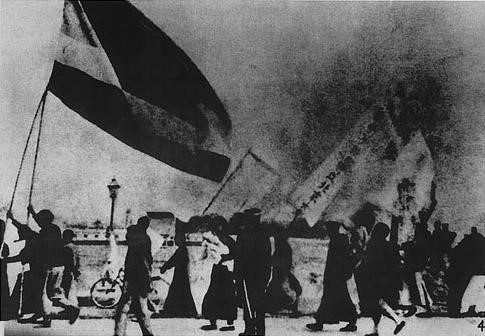| By Rebecca Chiew and Emery Pan, Editors in the Gale Asia Publishing Team |
May 4, 1919 was a day to remember for Chiang Monlin (蒋梦麟), a senior member of the Peking University administration. Three thousand students from Peking University and more than a dozen other universities in Beijing demonstrated in Tiananmen Square against the upcoming signing of the Treaty of Versailles. Chiang went on to write The China Mission Year Book (1919) and in the chapter dedicated to “The Student Movement,” he offered a gripping account of the incident at Tiananmen, detailing the fury and violence perpetrated by the students on the perceived traitors of China, and the countermeasures taken by the Chinese government on the riotous protestors. Chiang also analysed the causes of the May Fourth Movement, described the philosophy that underpinned the students’ mindset, and the societal changes that this philosophy brought about. Chiang later became the president of Peking University and the Minister of Education (1928–1930).

